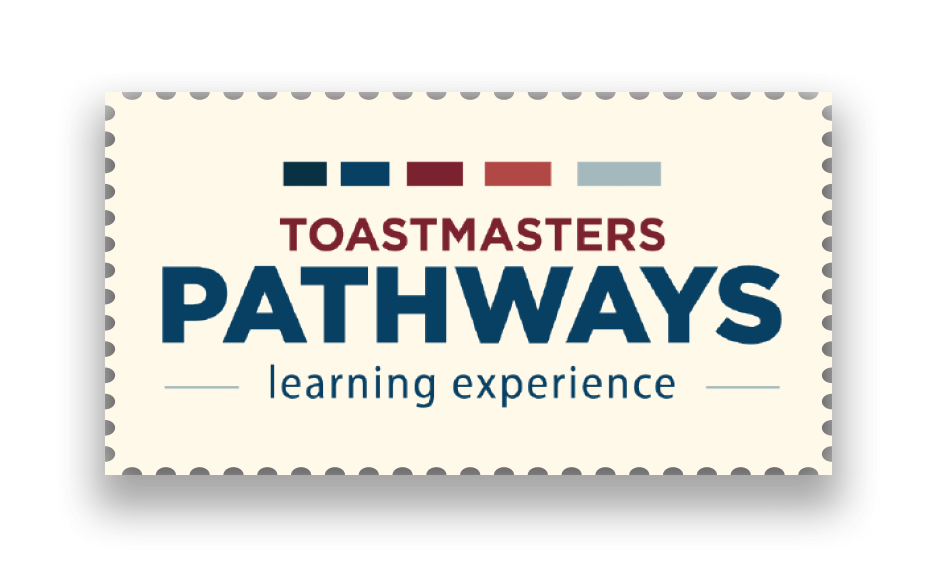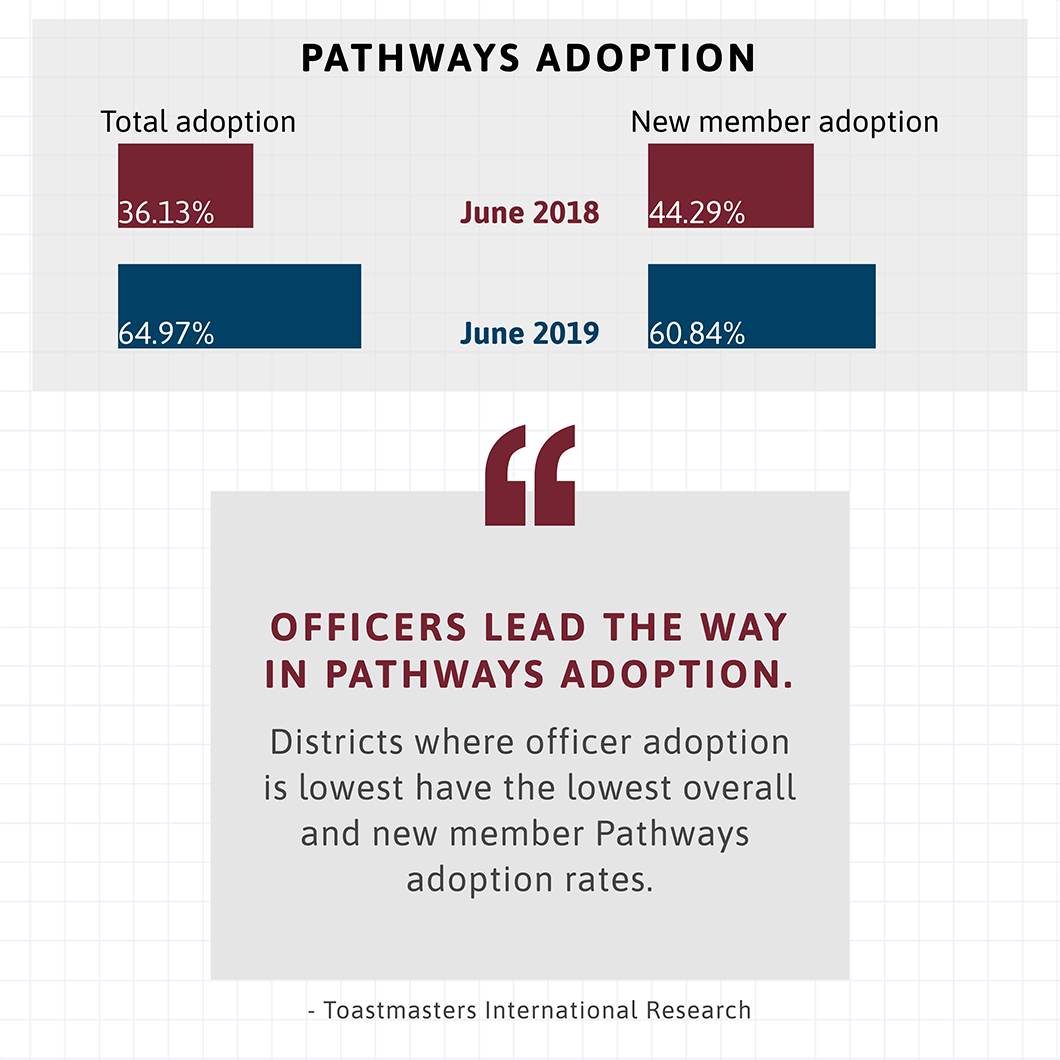
Ever since Pathways launched worldwide in 2018, members have looked to their leaders for inspiration and assistance with the education program and with Base Camp, the online learning management system.
Which is why it’s vital that district—and club—officers be enrolled and working in Pathways.
Role Models Matter
“Our members view club and district leaders as role models and emulate what they observe,” says Deepak Menon, DTM, Toastmasters’ 2019-2020 International President. “Also, these leaders are expected to have knowledge and experience about the education program they are required to promote to enhance the growth and development of our members.”
The numbers back that up. According to the Toastmasters International Pathways Annual Report, which assesses the first year Pathways was available to members, statistics show a direct correlation between district officers adopting Pathways and members adopting Pathways. (A member is considered to have adopted Pathways once they’ve logged into Base Camp and created an account. Most members choose a path as soon as they get into Base Camp.)
“Districts with the lowest officer adoption rates have the lowest overall and lowest new-member adoption rates,” the report concludes.
New members who join Toastmasters work in Pathways as their education program. For all others, there has been a transition period that enables them to work in either Pathways or Toastmasters’ traditional education pro- gram, or both. The transition period ends June 30, 2020, after which Pathways will be the organization’s sole education program.
The Pathways Annual Report shows that in districts where more than 90% of district officers adopt Pathways, more than 80% of existing members, and more than 70% of new members, adopt Pathways as well. And at the other end of the spectrum, in districts where less than 60% of district officers adopt Pathways, less than 55% of existing members, and less than 50% of new members, adopt the program.
Menon says this equation means only one thing: “It is imperative that all of the club and district leaders actively adopt and engage with Pathways.”
A One-Year Analysis
The Pathways Annual Report was compiled by the Business Research and Analysis team at Toastmasters World Headquarters. It covers the first full program year that Pathways was available to members (from July 2018 to June 2019). Some of the findings include:
- The overall rate of members adopting Pathways (as of June 2019) was about 65%, up from 36% a year earlier.
- The rate of new members adopting Pathways is also growing. The adoption rate as of June 2019 was about 61%, almost 17% higher than it was a year before.
- On average, users take approximately 222 days to complete a path.
- The path completed by the most members is Presentation Mastery (about 200 members had completed it at the time of the report).
Perhaps nothing is as attention-grabbing as the statistics that reflect the connection between officers adopting Pathways and members adopting the program. Lynda Starr, DTM, District 83’s program quality director in 2018-2019, says her fellow district officers not only enrolled in Pathways but took many steps to help members become comfortable with navigating the program. One has been holding “Pathways Live” events—drop-in sessions where members work with Pathways leaders and get any of their questions answered.

“District 83 has done a combination of the drop-ins, workshops, virtual conferences, and club visits by our Pathways team led by a past district director,” says Starr, the 2019-2020 district director. “The hands-on approach—offering members a chance to come with their laptops, tablet, or other devices and sit with a Pathways trainer or Base Camp Manager—seems to be the most effective regardless of the setting. The district is continuing to do all three types of trainings.”
It’s up to district officers to set the tone for success, she adds.
“Leaders need to lead by example. How can we motivate members to migrate to Pathways when we ourselves have not done so?” says Starr, a member of the Dining to Speak Toastmasters club in Fairfield, New Jersey. “We cannot ‘sell’ the program to others if we lack understanding of it and enthusiasm for Pathways.”
“Our members view club and district leaders as role models and emulate what they observe.”
—Toastmasters International President Deepak Menon, DTM
Starr herself started in Pathways when it became available to District 83 in May 2018. She is now on Level 2 in both the Effective Coaching and Motivational Strategies paths. “I picked these paths to help build my leadership skills in my role as program quality director and now district director.”
Officers and members should all be working in Pathways at this point, not waiting until the June 30, 2020 deadline, says Menon. He adds that Pathways is here to stay, and it’s a great asset to current and future Toastmasters. The innovative program will help members better meet their professional and personal goals.
“The Pathways education program provides contemporary skills and competencies much needed in our lives, presently, and in the future,” says Menon. “Embracing Pathways as quickly as possible provides our members a head start in gaining these competencies that will help them achieve the objectives for which they have joined Toastmasters.”
Paul Sterman is senior editor, executive and editorial content, for Toastmasters International. Reach him at psterman@toastmasters.org.
Related Articles

Club Experience
Welcome to Pathways 101!

News from Toastmasters



 Previous
Previous
 Tracking Tools
Tracking Tools
 Previous Article
Previous Article